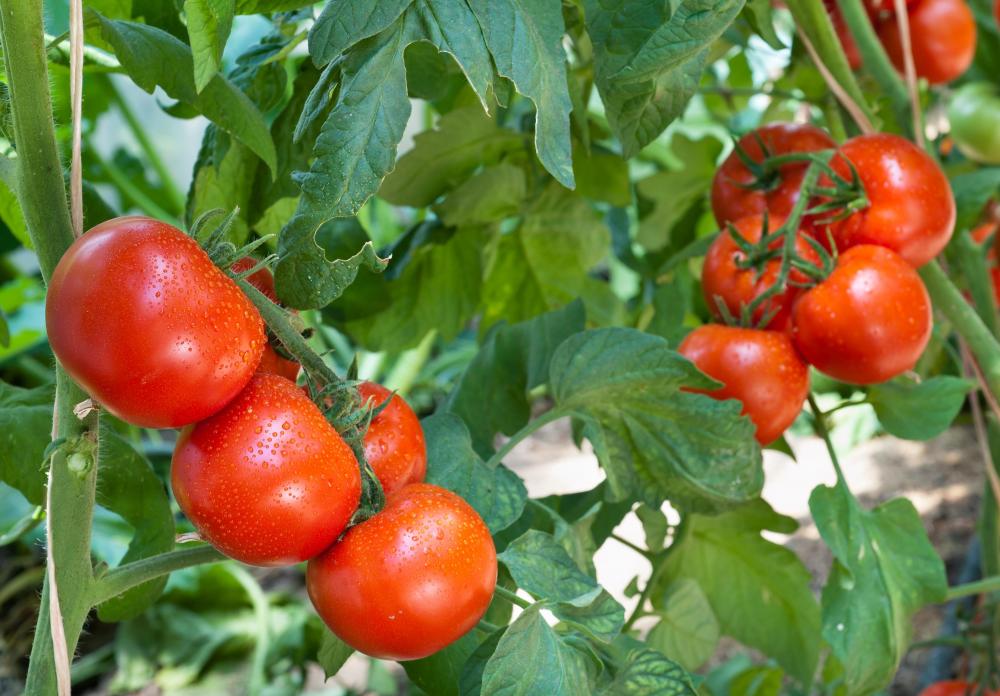At WiseGEEK, we're committed to delivering accurate, trustworthy information. Our expert-authored content is rigorously fact-checked and sourced from credible authorities. Discover how we uphold the highest standards in providing you with reliable knowledge.
What Do Plants Do When They're Stressed?
Plants may seem quiet, or even silent, but they are capable of making noises that are outside the range of human hearing. And it turns out that "stressed" plants that are dehydrated or have been cut emit many more ultrasonic sounds than healthy, unstressed plants.
If you’re imagining a plant crying out in pain or frustration, it’s not really like that. Instead, plant noises come in the form of clicking or popping sounds that may be more like the creaking of our joints than an attempt to communicate.

Normally, healthy tomato and tobacco plants in greenhouse conditions emit just one of these sounds per hour. But researchers at Tel Aviv University found that during times of stress, the plants can produce up to 35 clicks/pops per hour. While we can’t hear them without the aid of technology, creatures such as insects and mice can. For certain animals, knowing that a plant is in distress could be helpful for deciding whether it offers a good place to lay eggs or whether it's worth eating. The sounds could also help farmers care for their crops, especially when deciding which plants have the greatest need for water at a given time.
The sounds emitted by plants are too high-pitched for us to hear. The upper range of human hearing is around 20kHZ, whereas plant noises are around 40 to 80kHZ. If we were able to detect such high frequencies, we’d hear the pops at a volume similar to normal human speech. The pops are most frequent when the plant has gone around five days without water, but slow down as it dries up and dies.
Not-so-silent plants:
- Researchers don’t fully understand how plants emit these sounds, but they suspect it may be a process called cavitation – air bubbles forming and popping within water-carrying plant tissue known as xylem. In addition to tomatoes and tobacco, other plants make similar popping noises, from wheat to grapes to cactus.
- Although the sounds are undoubtedly physiological responses, rather than an attempt to communicate, the plants produced different noises depending on the specific type of stress. An artificial intelligence algorithm learned to differentiate between the sound of a dehydrated plant and one that had its stem cut and correctly identified the sound around 70% of the time. The AI algorithm could also differentiate between the sounds made by tomato vs. tobacco plants.
- Scientists were already aware that plants produce vibrations and emissions in the ultrasonic range, but this is the first study that has picked them up through airborne sound, rather than through sensors connected to the plants.
AS FEATURED ON:
AS FEATURED ON:











Discuss this Article
Post your comments